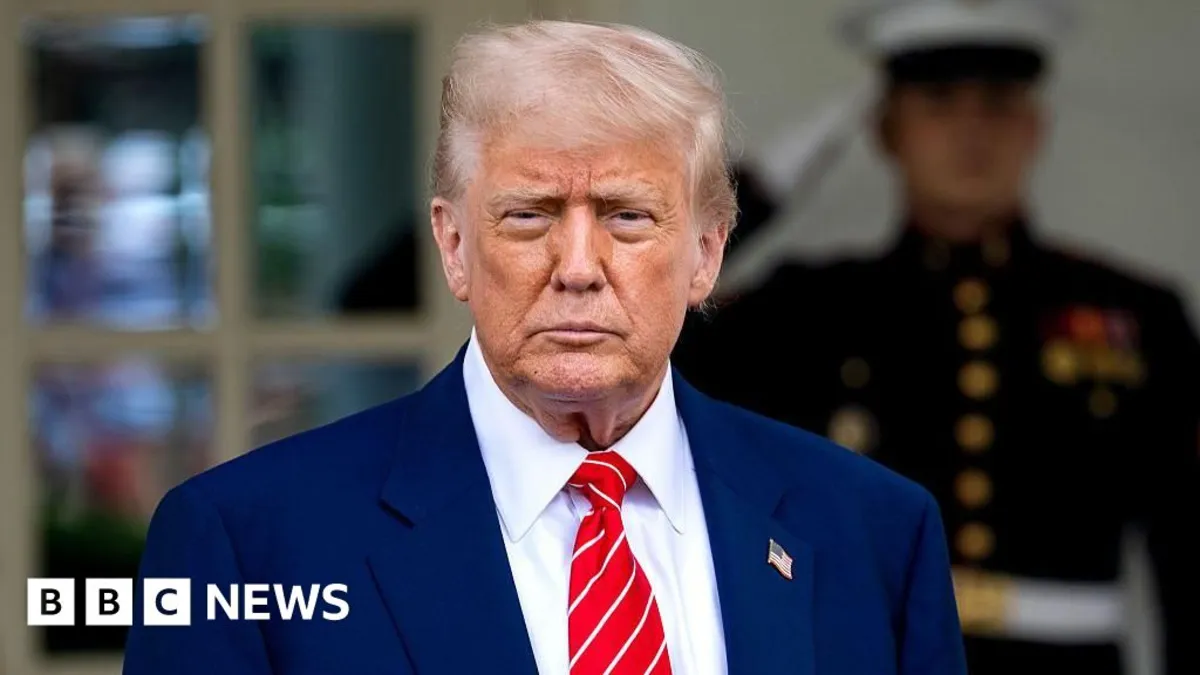
The Trump administration is reportedly exploring the possibility of suspending habeas corpus, a fundamental legal right that allows individuals to challenge their detention in court. During a press briefing on Friday, Stephen Miller, the White House deputy chief of staff, highlighted that the US Constitution permits the suspension of this legal liberty in times of rebellion or invasion.
These comments come amid ongoing legal battles as judges have increasingly questioned some of the recent detentions carried out by the Trump administration. These detentions are part of the administration's broader efforts to combat illegal immigration and remove foreign students who dissent against US policies. "A lot of it depends on whether the courts do the right thing or not," Miller remarked, emphasizing the administration's reliance on judicial outcomes.
Currently, there are several pending civil cases against the Trump administration's deportation practices, particularly those involving undocumented migrants based on habeas corpus rights. Recently, a federal judge ordered the release of a Turkish university student who had been detained for six weeks after publishing an article critical of Israel. Similarly, another judge ordered the release of a Columbia University student who was detained for advocating for Palestinian rights, citing habeas corpus grounds.
However, it's noteworthy that some judges have ruled in favor of the Trump administration in related cases. Miller characterized habeas corpus as a privilege rather than an absolute right, asserting that Congress has already enacted legislation that limits judicial jurisdiction over immigration matters. This interpretation has raised eyebrows among legal experts, who have questioned its accuracy.
One of President Trump's key campaign promises was to deport millions of undocumented immigrants from the United States. His administration has actively sought various methods to expedite deportations since his return to the White House. In March, a federal judge intervened to prevent the administration from invoking a historic wartime law to justify the deportation of over 200 Venezuelans, even as flights continued.
Despite aggressive detention tactics, actual deportations have not kept pace, with reports indicating that one individual was erroneously deported. According to sources cited by CNN, Trump has been personally involved in discussions regarding the potential suspension of habeas corpus, although he has not explicitly mentioned it in public statements. Instead, he has indicated his intention to take measures against judicial injunctions that challenge his deportation efforts.
Habeas corpus, which translates to "you shall have the body," is a legal principle that allows individuals to be brought before a judge to assess the legality of their detention. This right has been suspended only four times in US history: during the American Civil War under President Abraham Lincoln, in Hawaii after the attack on Pearl Harbor in 1941, during US governance of the Philippines in 1905, and in response to the activities of the Ku Klux Klan in the 19th century.
As the situation unfolds, it remains uncertain whether President Trump will attempt to suspend habeas corpus without congressional approval. The implications of such a move could be profound, affecting countless lives and the very fabric of the American legal system.